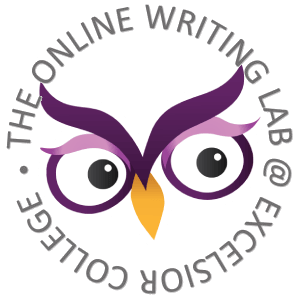English Composition is a course designed to improve your reading, writing, and critical thinking skills. You are usually required to take the course during your first year of college, often broken into two sections. Typical course titles include English Composition 1 & 2 or 101 & 102, but the course titles and course requirements vary considerably.
The goal of English Composition is to teach students how to read and write effectively.

What to Expect in an English Composition Course
English composition courses teach you how to use language and other communicative elements (e.g., visual elements) for a variety of purposes. Whether it's learning how to write an essay or research paper, speak confidently in class, or work on group projects, the skills taught in these courses can help you succeed in college and beyond. You'll be able to build your professional prospects with valuable analytical ability and communication skills. Composition courses almost universally address the aforementioned skills, though they vary a great deal in the types of assignments and projects they assign to students in order to promote development of these skills.
Learning Outcomes from an ENG 101 Course - Example
By the end of the course, students will...
1. Use writing for learning, thinking and communicating to solve problems, draw logical conclusions and create innovative ideas.
2. Identify and evaluate the main idea, major points and supporting details in a text, film, image or presentation.
3. Identify and evaluate the author's rhetorical choices in a text, film, image or presentation.
4. Differentiate between credible and noncredible sources and select appropriate sources for the writing task.
5. Identify multiple viewpoints pertaining to a given topic and engage in verbal or written discussion of those viewpoints.
6. Recognize writing as a recursive process of inventing, planning, drafting, revising and editing, and employ these strategies in written work.
7. Collaborate with instructor and peers to evaluate written work and incorporate feedback into one's writing.
8. Learn to recognize and adapt content, form, style and tone to the audience, purpose, context and requirements of a composition assignment.
9. Organize one's writing logically using a thesis statement and other organizational strategies such as topic sentences, transitions, and/or specific introductory and conclusion techniques to create cohesive, clear writing.
10. Integrate research into written work.
11. Define plagiarism and avoid plagiarism in written work and oral presentations through proper quoting, paraphrasing and summarizing.
12. Use an appropriate system of documentation in written work, such as MLA, APA, or Chicago Style.
13. Employ the conventions of standard written English and grammar, language usage, punctuation, word choice and style.
Learning Outcomes from an ENG 102 Course - Example
By the end of the course, students will...
1. Replicate the outcomes for ENG 101 in more complex discursive samples with particular attention to interpretation, analysis and synthesis, while emphasizing analytical reading and writing, critical thinking, logical forms of reasoning and research methodologies.
2. Demonstrate the ability to adapt language and rhetoric that serves a persuasive purpose in written argument and anticipates audience considerations.
3. Demonstrate proficiency at incorporating source material into written work through the use of sophisticated research strategies to locate both primary and secondary sources in scholarly research. All sources are properly documented to avoid plagiarism.
4. Demonstrate an understanding of logical, ethical and emotional appeals in written and oral discourse and evaluate the impact of such appeals in a given rhetorical situation.
5. Identify and evaluate the claim, grounds and warrants in a given work for logical progression of thought and quality of argument.
6. Define and identify examples of logical fallacies in a given work and explain how they weaken the claim and/or support for the argument/analysis.
7. Explain inductive and deductive forms of logic and explain how arguments are constructed around these logical forms of reasoning.
8. Assess and interpret visual arguments in a variety of media as a form of textual analysis. Media can include film, photo journalism, print advertisements, billboards, commercials or other visual representations of argument.
9. Summarize, analyze, and critically evaluate both published and student-written arguments.
10. Utilize standard written English, language usage, punctuation, word choice, style and grammar within the conventions of academic writing.
11. Demonstrate the ability to present academic work in an appropriate system of documentation.
Types of Assignments in English Composition
English Composition is a course that teaches you how to analyze a variety of texts through close reading and constructing meaningful arguments and critiques using textual evidence from a wide range of credible sources.
Unsurprisingly, essays are one of the most common types of writing assignments in the composition course. Being able to write a decent essay is essential to your success in the modern academic environment. There are many different types of essays; here are some of the kind you are likely to see:
- Narrative Essay
- Reflective Essay
- Descriptive Essay
- Explanatory Essay
- Compare and Contrast Essay
- Evaluation/Analytical Essay
- Process Essay
- The Problem/Solutions Essay
- Persuasive/Argumentative Essasy
- The Research Paper
- Rogerian Essay
Formal essays are a large portion of your grade in any college-level writing class. You may be required to write several different types of essays on a variety of topics. Though there is overlap in the characteristics that define these essays, you will find they are distinguished by their preferences for certain organizational arrangements and modes of discourse.
English Composition and Career Success
The ability to write and communicate well is now the core of many professional career paths. Employers want writers who can promote their product or service through compelling language, narrative, tone, style, and grammar. Those with good writing skills are a hot commodity in today's job market since they can also increase productivity by creating effective marketing materials, such as sales pages on websites or brochures intended for clients.
Employers may seek out those with strong English composition abilities even if they have experience in an entirely different field because it indicates that they will likely be able to adapt easily to new areas of work without extensive (and expensive) re-training.
English composition is also closely linked with other important 21st century skill sets such as critical thinking, analytical reasoning, and communication since it requires that students learn how to form arguments using facts, while being coherent enough that others will understand their points of view clearly. These skills are becoming increasingly valuable assets to employers who need employees who are both competent and creative.
What are some ways to improve your English Composition skills?
First, you should read more. A wealth of knowledge is readily available on the internet and in free or low-cost ebooks. Reading will help you improve your vocabulary, grammar, spelling, punctuation skills, and your writing style.
Second, you should study grammar rules, but don't fall into the trap of believing that good grammar equals good writing. Rather, keep in mind that most important skills a writer needs are analytical and rhetorical. You should expand and refine your knowledge of grammar and style as you build your rhetorical skills.
Third, you should write, and then write some more. Writing is—in a way—its own language, and you can't get better at a language without practice. Immerse yourself in the practice of writing, and not just for school assignments. Keep a journal, write to friends on social media or in email exchanges. When you combine consistent reading with consistent writing, you will accelerate your development as a writer.
5 Excellent University Writing Websites for English Composition Students
An Online Writing Lab (OWL) is a website or an online resource designed to help students improve their writing skills and be successful in their writing-intensive courses across the curriculum. A good OWL will support students at every stage of the writing process and provide resources for a variety of writing situations.
Most colleges and universities offer some type of writing lab or resource center, though not always online—here are 5 of the best online writing labs you will find.
1. The Excelsior Online Writing Lab

The Excelsior online writing lab may be the most extensive college writing lab in terms of interactive resources, hosting a vast range of H5P-based content, such as interactive slides, quizzes, and videos—in addition to numerous web articles. It's a great resource for both students and instructors of writing. The following video provides an overview of their site, and also illustrates the quality of their video resources.
2. Purdue OWL
One of the most trusted online writing labs, and certainly the most visited, Purdue University's online writing lab offers an impressive vault of writing resources. Unfortunately, its greatest strength is also its biggest challenge, which is in trying to maintain a clean, organized presentation of so much information. Ads, pop-ups, and layout issues distract from an already daunting organizational scheme, but it has a search box and terrific sitemap to counter these issues.
3. Colorado State University
Another fantastic website for writers and instructors is Colorado State University's writing resource page. Here you will find a generous and impressive number of guides, articles, writing samples, and links to additional resources for writers, including a collection of open-source textbooks on writing.
As with the Purdue OWL, navigating the site could pose a challenge, but it does provide a much less distracting reading environment.
4. The Writing Center - UNC at Chapel Hill
User-friendly and extensive in its coverage of academic writing topics, the Writing Center by University of North Carolina at Chapel Hill is easily one of the best you'll see online—bookmark it if you're a student or teacher.
The Tips and Tools section is well organized and easy to use. Each of the topics is covered in great detail—the topic pages are good enough to be assigned reading or given as handouts in class if you're a writing teacher.
With a few exceptions, the content pages illustrate important characteristics of online writing, such as the use of headings, bullet points, and white space. This page about blogging is a good example.
You'll also find video icons next to the topics that include videos to supplement the instruction.
5. Duke - Thompson Writing Program
Duke's Thompson Writing Program provides and curates a laudable selection of writing resources on its website. Many of their resources take the form of handouts, which makes the content convenient for teachers and students who want or need to work with print copies.
The Writing Center - University of Wisconsin Madison
The Writing Center at UW-Madison provides an online writer's handbook covering an extensive list of topics to assist student writers with academic and professional writing—many of which can be printed as handouts.
Note: their content menu is in the right panel of the webpage—most sites display menus on the left or on top of the page, while showing related or popular links on the right—so don't be thrown off; use the right-side menu to navigate topics (This advice applies to desktop browsers—the layout on mobile browsers was not tested).
10 Reasons Students Drop Out of Composition Class
And finally, here's an entertaining video in which one particular English instructor combines the genres of the listicle, personal rant, and talking-head explainer video to help English students avoid common pitfalls—you might ask your own English teacher or professor for their top 10, as each will have their own preferences...and personalities : )